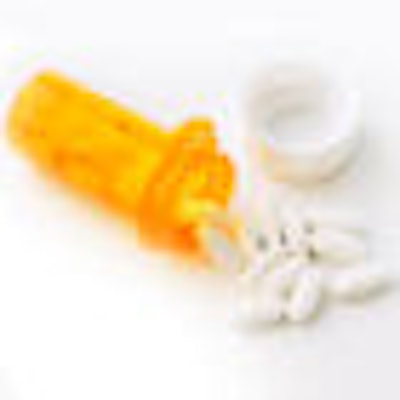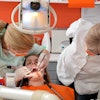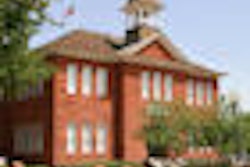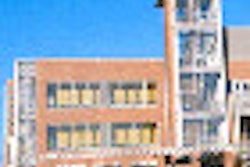
The University of Colorado Denver School of Dental Medicine is tightening its license and prescription policies following disclosures that seven dentists lacked required licenses and that prescriptions were being written using the Drug Enforcement Agency (DEA) numbers of faculty who were not present.
School officials say they did not realize the new licensing law, which took effect last August, required dentists to have either an academic or active Colorado license. Prior to that, the law made an exemption for faculty members with inactive or retired licenses to practice at the school's clinic.
"These folks are in supervisory roles, and it is considered acceptable practice in teaching institutions," university spokeswoman Jacque Montgomery told DrBicuspid.com. "It was an oversight. We failed to recognize the impact on existing licenses."
New law confusing
The law established a new category of academic license, but the wording created confusion, Montgomery said. For example, foreign-trained dentists were allowed to practice at the university's clinic under a separate exclusion in the law that was unchanged by the new legislation -- a potentially important rule because Colorado requires a dental degree from a U.S. school to grant an active license.
Since most dental licenses are not "portable," Colorado allowed the exemption for foreign-trained dentists so they could teach and work in labs, Montgomery explained.
“I think it's a case of unintended consequences.”
— Chris Lines, Colorado Department of
Regulatory Agencies.
Many dental schools have similar "limited" or "faculty" licenses allowing dentists with out-of-state licenses to work at their schools, she noted.
"I think it's a case of unintended consequences and people just weren't ready for the change when it came," Chris Lines, spokesman for the Colorado Department of Regulatory Agencies, told DrBicuspid.com. "As soon as the discrepancy came up, they addressed it. The ... dental school is very good at communicating with the dental board."
The University of Colorado Denver School of Dental Medicine consistently ranks in the top tier of U.S. dental schools on all standardized exams and the top third of research dental schools, according to the school's dean, Denise Kassebaum, D.D.S., M.S.
Reactivating licenses
Legislators met February 5 to clarify the law, which will require all faculty to have either an active or academic license.
After the Denver Post ran several stories in recent weeks about the violations, the school ordered five of its dentists to stop seeing patients until they receive active or academic dental licenses. Six of the dentists have since obtained the required licenses, and Randal James, D.D.S., a University of Colorado faculty member for more than 30 years, has applied to reactivate his license.
Only seven of the school's 93 faculty members were affected by the new law, Montgomery noted.
Following the Post stories, the university also stopped a practice that allowed residents to procure sedation drugs and write prescriptions using the federal credentials of faculty members who were not present. Federal law requires that a doctor must have a relationship with the patient for whom the prescription is written.
Montgomery said there was "occasional inappropriate use" of prescriptions, but noted that most residents who write prescriptions are partnered with a faculty member who has the requisite DEA registration number.
The university now has more stringent rules for those whose DEA numbers are used for prescriptions. "They have to be in consultation with the patient, and the attendings have to be on the floor," Montgomery said. School officials will also meet with DEA staff to clarify requirements regarding who can write them and in what circumstances, she added.
Dr. James' name was never used on prescriptions while his license was inactive, Montgomery noted. He has not had an active Colorado dental license since 2004.
"The quality of care and the safety of our patients is our top priority, and that was never in question," Montgomery said.
Other allegations
According to the Post, Dr. James and an unlicensed resident removed the wisdom teeth of a 17-year-old girl at the university's Sands Clinic last August, three weeks after the law took effect barring a dentist with an inactive license from practicing at the dental school. The girl needed three follow-up surgeries with another dentist and continues to have pain five months after the surgery, the Post reported.
Dr. James declined to be interviewed by DrBicuspid.com.
The girl's pain is consistent with dry socket, according to medical records obtained by the Post, and David Lurye, D.D.S., president of the Colorado Dental Association and a professor of restorative dentistry at the University of Colorado, noted that follow-up care for dry socket is not unusual in third-molar extractions.
"The potential of dry socket is statistically there," he told DrBicuspid.com. "It's one of many things that we caution patients about regarding potential outcomes."
However, the day of her surgery, the girl reportedly left the office with prescriptions for Vicodin and Dilaudid, both controlled substances. Neither the resident nor Dr. James was authorized to sign prescriptions, according to the Post. The prescription used the DEA number of Paul Bottone, D.D.S., a faculty member who was not working in the clinic that day.
If a pharmacist asks him to verify the prescription, Dr. Bottone checks with the clinic to find out what's written in the clinic's prescription log, he told DrBicuspid.com.
"There are checks and balances," he said.
DEA's rules have been unclear about prescription-writing authority, Dr. Bottone said. "In the past, you talk to three people, you get three opinions," he said. "They could have figured this out a long time ago and given temporary numbers to people in residency programs. People who come into the clinic know they'll be supervised and they'll get quality work."
The changes adopted by the university will help clarify the rules for everyone, Dr. Lurye noted. "I think this will just tighten up the details. We need a cleaner delineation," he said.
Jim Young, the executive director of the Colorado Dental Association, agreed.
"There have been no complaints [about the school] regarding care, and we have the utmost confidence in the state board as well as the school administration to address the issues appropriately and to continue to provide outstanding care and education," he told DrBicuspid.com.
Copyright © 2010 DrBicuspid.com



















